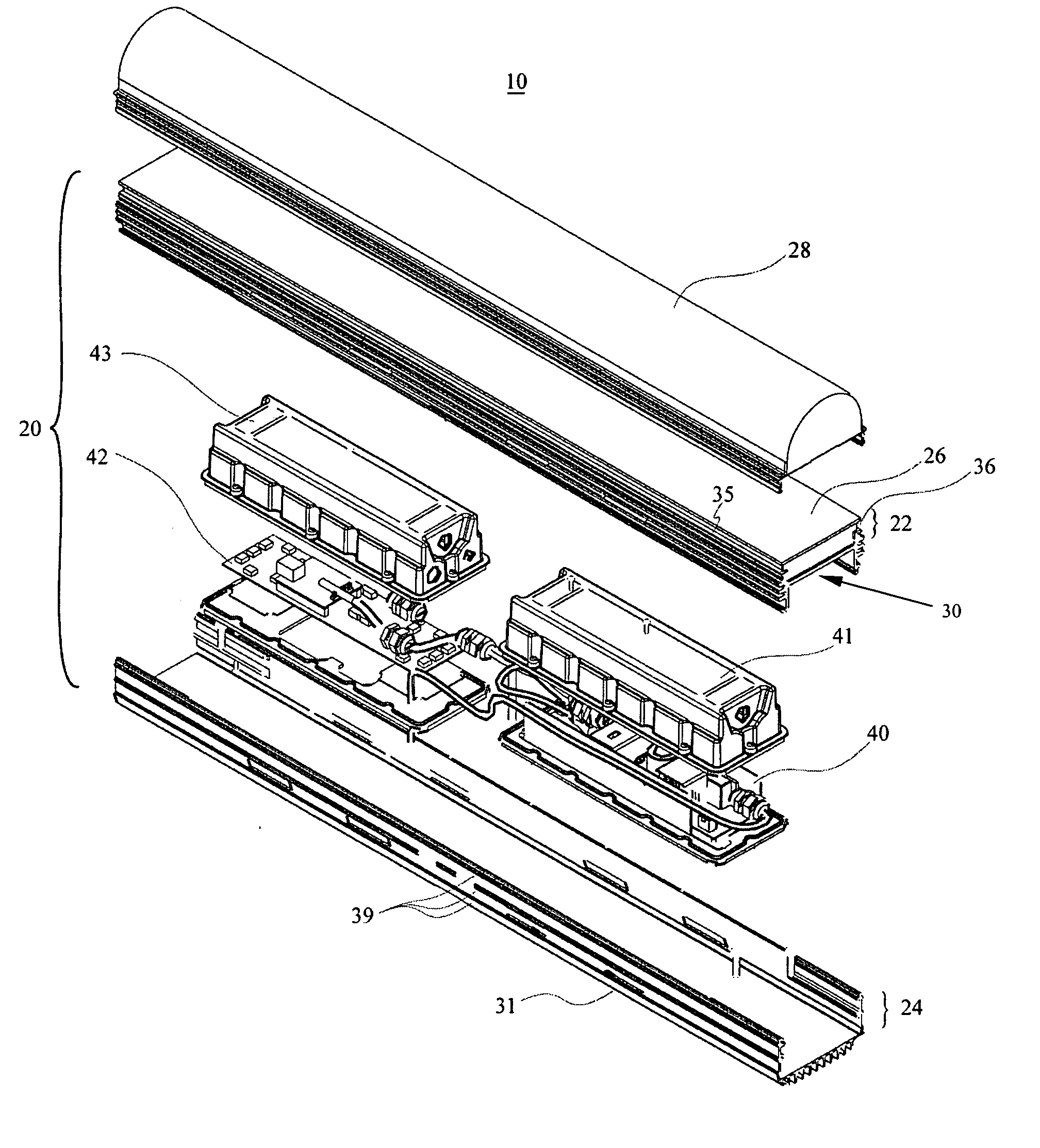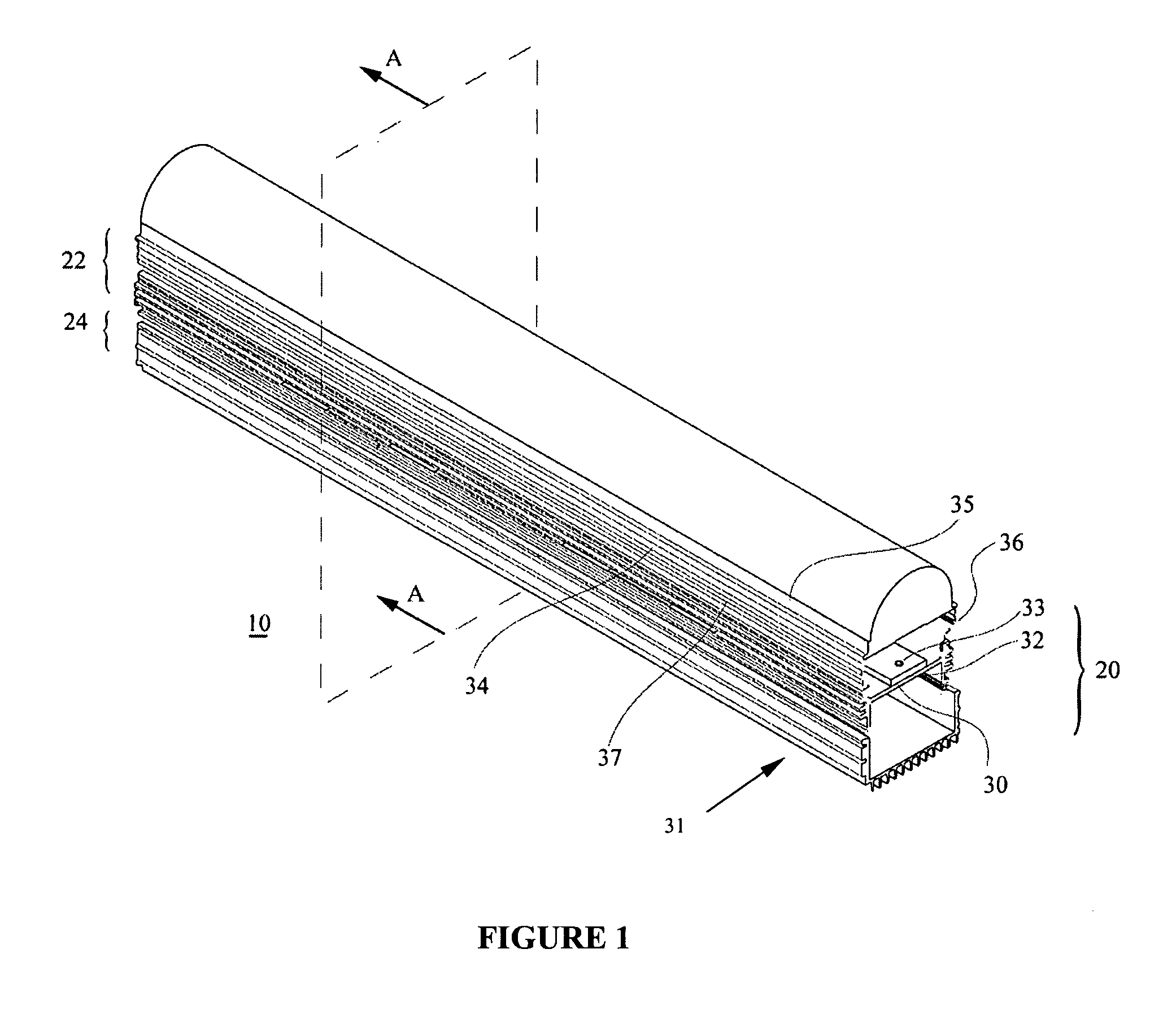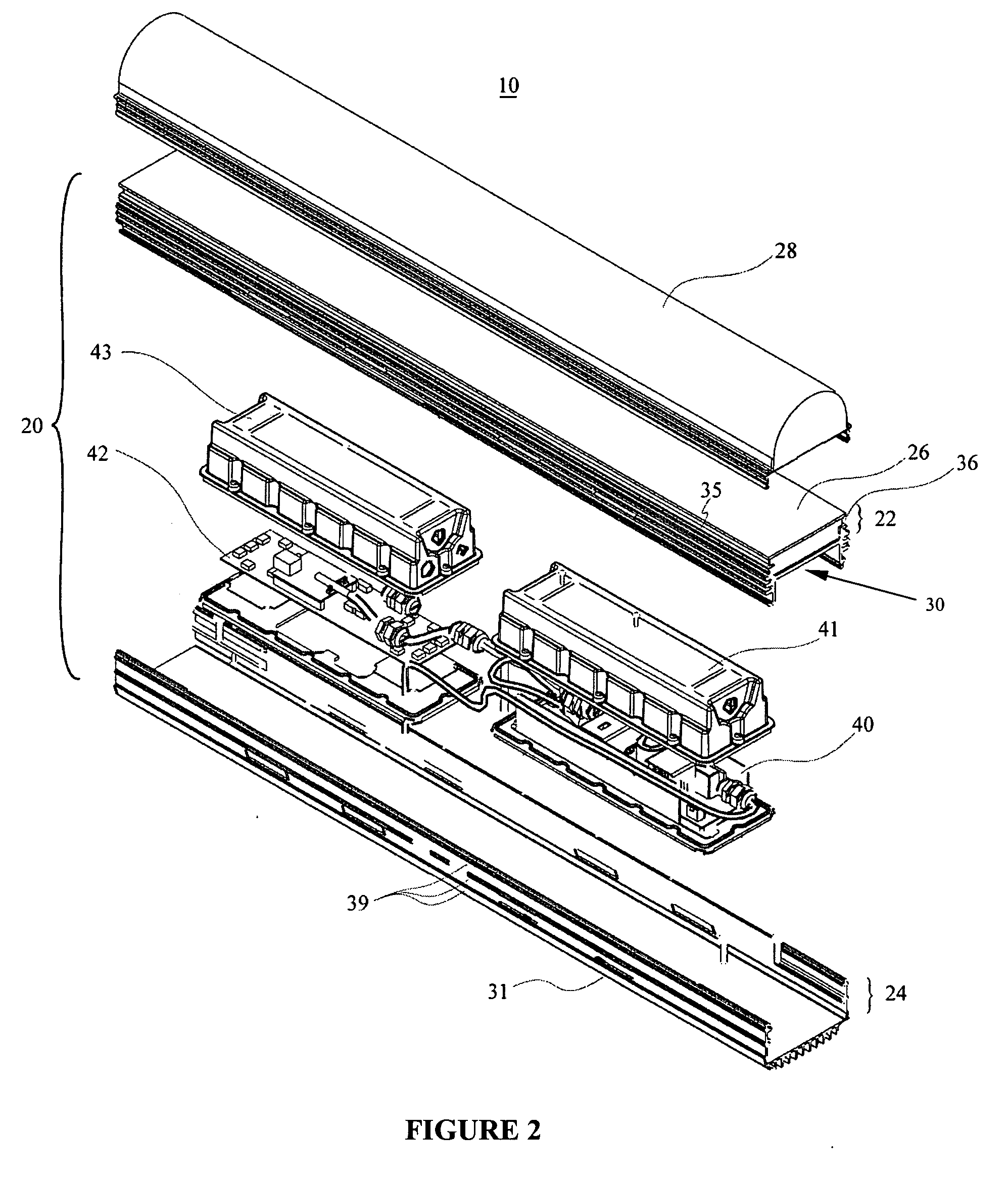Directly viewable luminaire
a direct view, luminaire technology, applied in the field of lighting, can solve the problems of reducing the reliability and life expectancy of the lighting module, generating large amounts of heat, and reducing the brightness of the luminaire, and achieve the effect of constant luminan
- Summary
- Abstract
- Description
- Claims
- Application Information
AI Technical Summary
Benefits of technology
Problems solved by technology
Method used
Image
Examples
Embodiment Construction
Definitions
[0033] The term “light-emitting element” is used to define any device that emits radiation in the visible region of the electromagnetic spectrum when a potential difference is applied across it or a current is passed through it, for example, a semiconductor or organic light-emitting diode (LED or OLED, respectively) or other similar devices as would be readily understood. It would be obvious to one skilled in the art that elements that emit other forms of radiation such as infrared or ultraviolet radiation may also be used if desired in the present invention in place of or in combination with light-emitting elements.
[0034] Unless defined otherwise, all technical and scientific terms used herein have the same meaning as commonly understood by one of ordinary skill in the art to which this invention belongs.
[0035] The present invention arises from the realization that improved light output can be achieved by heat dissipation and improved light reflection. Accordingly, t...
PUM
 Login to View More
Login to View More Abstract
Description
Claims
Application Information
 Login to View More
Login to View More - R&D
- Intellectual Property
- Life Sciences
- Materials
- Tech Scout
- Unparalleled Data Quality
- Higher Quality Content
- 60% Fewer Hallucinations
Browse by: Latest US Patents, China's latest patents, Technical Efficacy Thesaurus, Application Domain, Technology Topic, Popular Technical Reports.
© 2025 PatSnap. All rights reserved.Legal|Privacy policy|Modern Slavery Act Transparency Statement|Sitemap|About US| Contact US: help@patsnap.com



